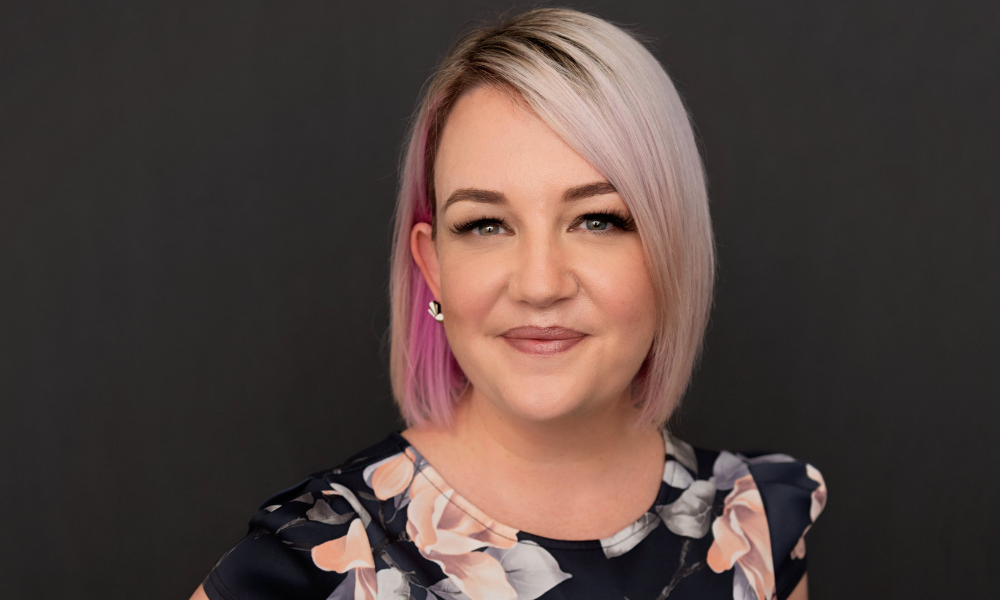Certainty remains a priority, says mortgage adviser

In an environment of rising interest rates, fixed mortgage rates remain a popular option for first home buyers, a mortgage adviser says.
Sarah Curtis (pictured above), mortgage and insurance adviser at Sarah Curtis Mortgages said the certainty of fixed rates still aligned with what a large portion of her clients were looking for.
“People we’re talking to at the moment don’t feel like the stability is back yet – they’d rather know what their expenses are going to be and work to that,” Curtis said.
According to the mortgages.co.nz & Tony Alexander Mortgages Advisers Survey, released in May, of 74 mortgage advisers surveyed, 51% said borrowers were in favour of fixing for one year and 47% for two years.
For clients looking for longer-term affordability, two-year and three-year fixed home loan rates were a common theme, Curtis said.
“We would always break our loans up into different fixed rate structures and a portion of that will have a one-year rate, but always balanced between shorter and longer terms,” Curtis said.
Amid rapid interest rate increases, most recently the 0.50% rise in April, Curtis noted that shorter term fixed rates had recently increased, ANZ among the banks announcing increases to its six-month, 18-month and one-year and two-year fixed rates.
“Given the hard and fast increases we have seen in this space over the last 12 months, I think people have been a bit put off by the one-year term,” she said.
Curtis, who is based in Northland, said her clients were looking to get onto the property ladder in places such as Kawakawa and Kaeo, noting that housing supply within central Kerikeri was still an issue.
Change in market sentiment evident
In line with REINZ data and observations for April, Curtis said she had noticed stronger commitment from first home buyers, and that her conversion rate was a lot higher.
Where in the last two years, clients were asking for pre-approvals, and would tentatively decide whether they wanted to go ahead, now they were more confident about interest rates, she said.
“People who are ready to buy are now really committed to doing that, knowing they have 90 days to use that approval and if anything changes that they may not get [lending] to the same level,” Curtis said.
“They have some stability around building a structure over the next two years and they know that they can commit to the level of payments.”
Kiwibank chief economist Jarrod Kerr (pictured below) confirmed that Kiwibank’s forecast was for the official cash rate, currently 5.25%, to peak at 5.50%, with one further 0.25% rise this month – below Westpac’s peak cash rate forecast of 6%.

Expectations of a further rate hike were already well priced in, Kerr said, but there could be more movement in the variable rate, and less so on the one-year and two-year fixed rates.
Noting that the central bank had “forcefully increased interest rates” to drive the economy down, Kerr said that the Reserve Bank’s desire for a soft landing could result in an “awkward recession”.
Although picking the exact timing relies on multiple factors, Kerr said that the bank was forecasting rate cuts from late 2023 into 2024.
“I think there’s a chance we get a rate cut in November … the further we move out the greater the probability of rate cuts … in my opinion, the [Reserve Bank] will definitely be cutting rates next year,” Kerr said.
Curtis said banks were showing willingness to negotiate interest rates, noting that Westpac’s recent 5.99% three-year fixed rate deal was matched by other banks.
“It’s been changing week by week … there will always be one bank that moves, and the other banks slowly decide that they will match it,” she said.
Curtis said she expected a spring campaign where banks would continue to show a willingness to lend.
“There is a bit more stability in what the interest rates (and therefore the test rates) will be which means that people will be happier to make decisions, which means that banks will be fighting for good business again.”



